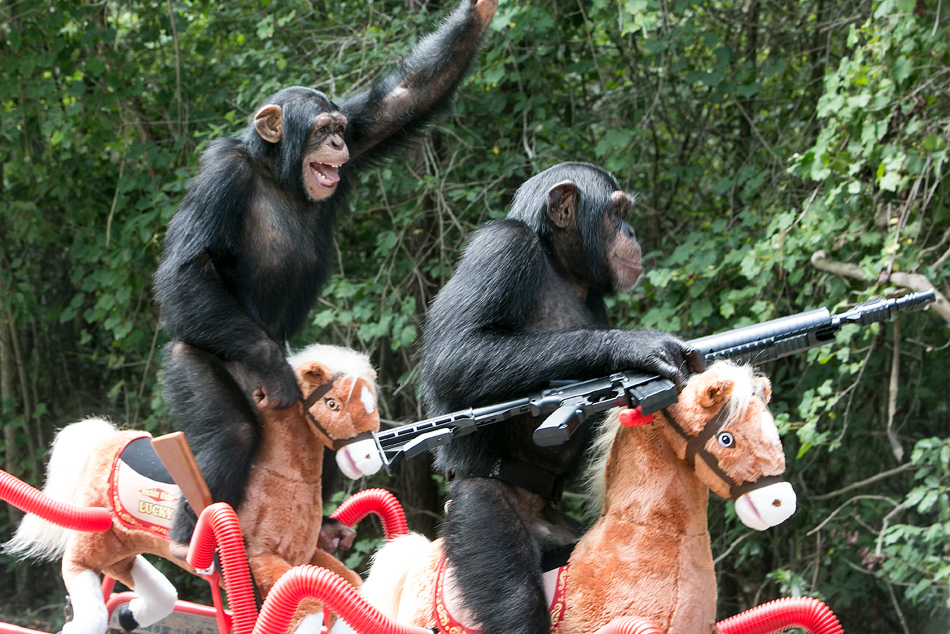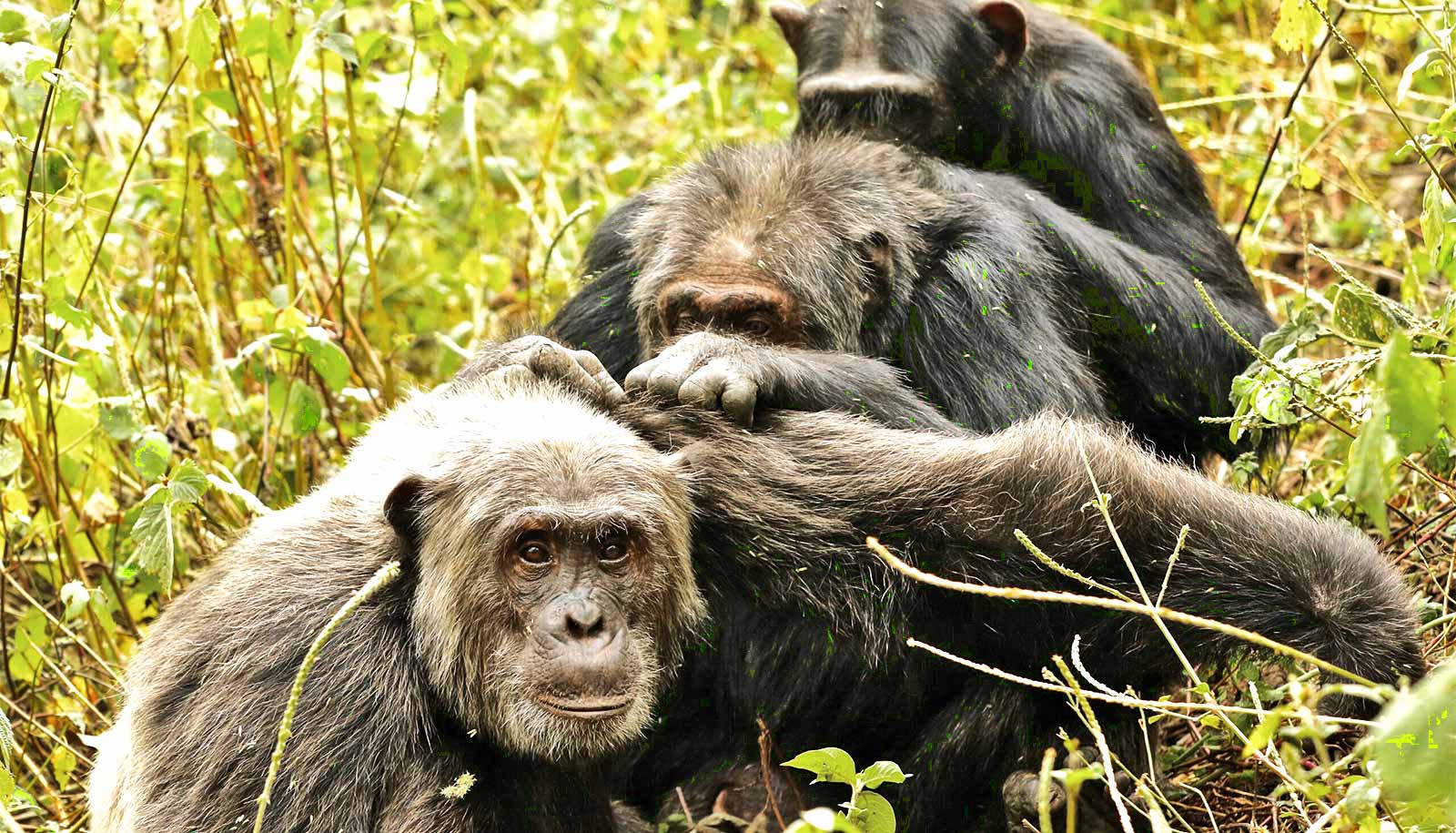

The idea of chimp genocide may sound strange, but they are one of only three animals that has been observed wiping out entire social groups. In some instances, one group will "invade" and annex the territory of another, killing all but the adult females, who are forced to incorporate into the dominant group.

They will often kill any male or young chimpanzees they find, sometimes eating or physically brutalizing their victims in a manner that some researchers liken to torture. The adult males of a social group, which usually number about 30 to 50 in size, daily patrol the edge of their group's territory. The chimp warfare described by this study, and previously by famed primatologist Jane Goodall, includes all the behaviors that we as humans consider to be the very worst: killing, torture, cannibalism, rape, and perhaps even genocide. The propensity for warfare in chimps could help explain the human conceptions of "good" and "evil" that define our laws, our social norms, and our morals. But it may reveal more than just the genetic roots of warfare. The study had led many to conclude that war is an innate behavior with genetic roots extending millions of years. The nature of chimpanzee war, in which males patrol their group's territory and violently annex the territory of other groups in pursuit of land and resources, is startlingly similar to the warfare that has consistently emerged throughout human history. A groundbreaking ten-year study on the behavior of chimpanzees, reported in Current Biology, reveals that humanity's closest living relative expresses a propensity for human-like warfare.


 0 kommentar(er)
0 kommentar(er)
